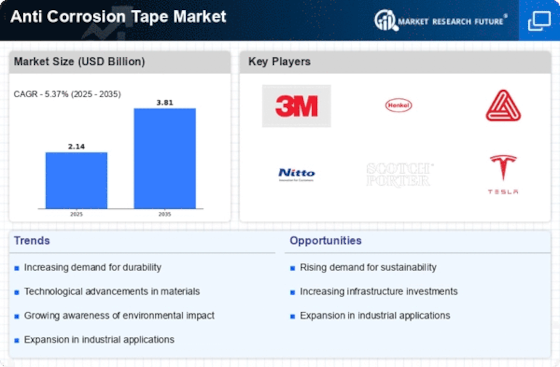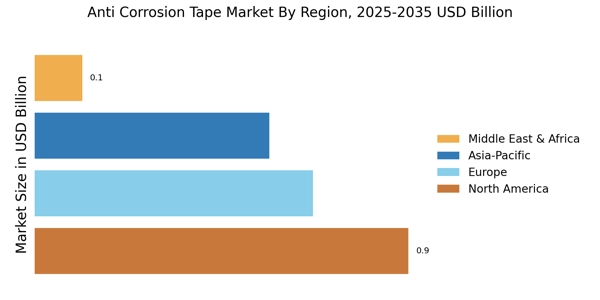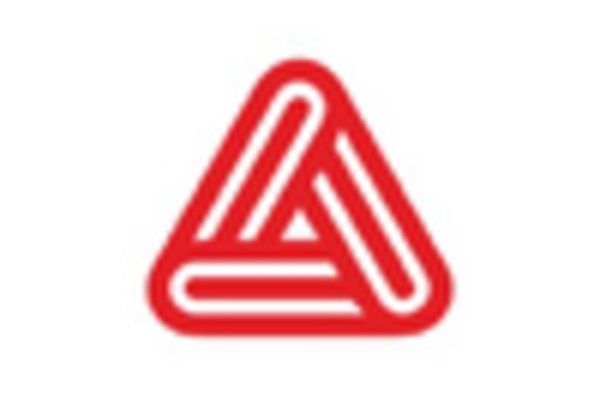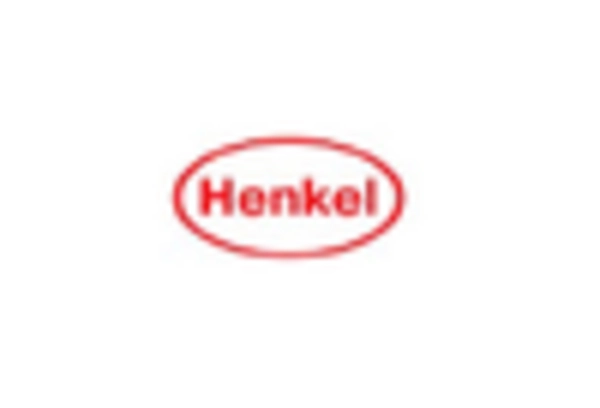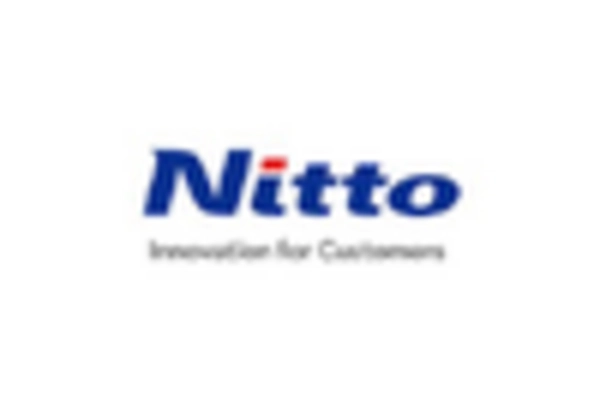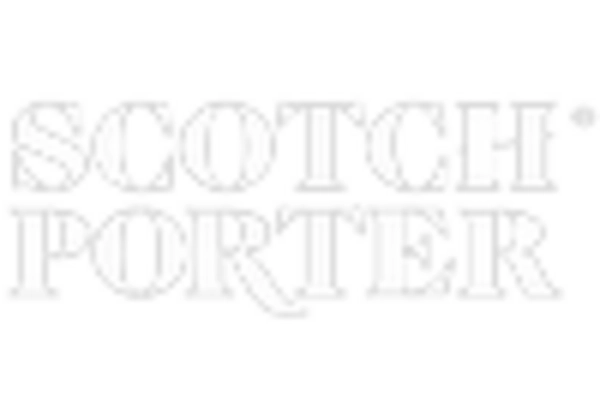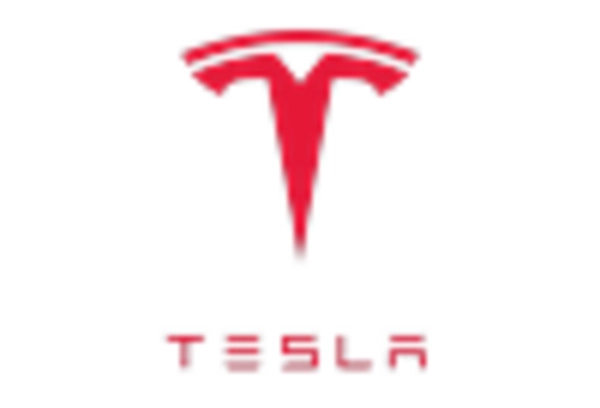Rising Demand from Automotive Sector
The automotive industry is experiencing a notable shift towards the adoption of anti-corrosion solutions, which significantly influences the Anti Corrosion Tape Market. As vehicle manufacturers strive to enhance the longevity and performance of their products, the use of anti-corrosion tapes has become increasingly prevalent. These tapes are utilized in various applications, including underbody protection and component sealing, to prevent rust and corrosion. The automotive sector is projected to witness a growth rate of around 4.5% annually, which suggests a sustained demand for anti-corrosion products. This trend underscores the importance of anti-corrosion tapes in maintaining vehicle integrity and safety, thereby driving the market forward.
Increasing Infrastructure Development
The ongoing expansion of infrastructure projects across various sectors appears to be a primary driver for the Anti Corrosion Tape Market. Governments and private entities are investing heavily in the construction of roads, bridges, and buildings, which necessitates the use of protective materials to enhance durability. The demand for anti-corrosion solutions is likely to rise as these projects often involve metal components that are susceptible to rust and degradation. According to recent estimates, the infrastructure sector is projected to grow at a compound annual growth rate of approximately 5.4% over the next few years, further propelling the need for anti-corrosion tapes. This trend indicates a robust market potential for manufacturers and suppliers within the Anti Corrosion Tape Market.
Growing Awareness of Maintenance Costs
There is a growing recognition among industries regarding the long-term benefits of using anti-corrosion solutions, which is likely to bolster the Anti Corrosion Tape Market. Companies are increasingly aware that investing in anti-corrosion tapes can lead to significant savings in maintenance and repair costs over time. By preventing corrosion, businesses can extend the lifespan of their assets, thereby reducing the frequency and expense of replacements. This awareness is particularly pronounced in sectors such as oil and gas, where equipment is often exposed to harsh environments. As organizations prioritize cost-effective solutions, the demand for anti-corrosion tapes is expected to rise, indicating a positive outlook for the Anti Corrosion Tape Market.
Regulatory Support for Corrosion Prevention
Regulatory frameworks aimed at promoting corrosion prevention measures are playing a crucial role in shaping the Anti Corrosion Tape Market. Governments are increasingly implementing standards and guidelines that mandate the use of protective coatings and materials in various applications, particularly in construction and manufacturing. These regulations are designed to mitigate the economic impact of corrosion, which is estimated to cost industries billions annually. As compliance becomes a necessity, the demand for anti-corrosion tapes is likely to surge, as they provide an effective solution to meet these regulatory requirements. This supportive environment indicates a favorable trajectory for the Anti Corrosion Tape Market, as stakeholders seek to align with best practices in corrosion management.
Technological Innovations in Product Development
Technological advancements in the formulation and application of anti-corrosion tapes are emerging as a key driver for the Anti Corrosion Tape Market. Innovations such as improved adhesive properties, enhanced durability, and environmentally friendly materials are attracting attention from various sectors. Manufacturers are investing in research and development to create products that meet the evolving needs of consumers. For instance, the introduction of self-healing tapes and those with advanced UV resistance is likely to expand the application scope of anti-corrosion solutions. This trend suggests that the market will continue to evolve, with new products that offer superior performance and sustainability, thereby enhancing the overall growth of the Anti Corrosion Tape Market.


